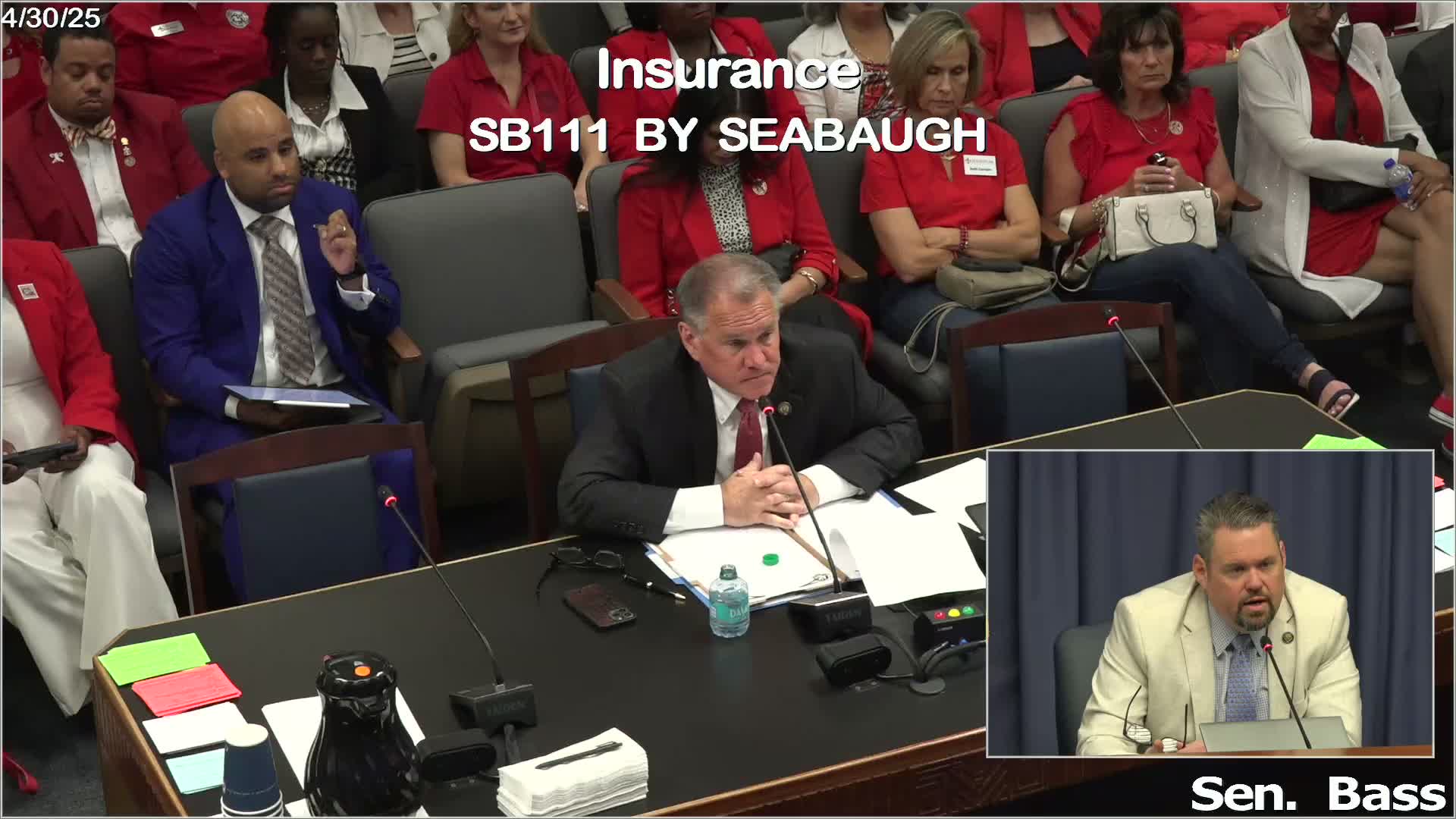Senate committee backs bill to let 18th JDC continue retiree health coverage until Medicare
Get AI-powered insights, summaries, and transcripts
Subscribe
Summary
The Senate Insurance Committee on April 30 voted to report Senate Bill 138 favorably, allowing the Eighteenth Judicial District district attorney’s office to provide short-term retiree health coverage to longtime employees until they become Medicare-eligible.
Senate Bill 138, which would allow the Eighteenth Judicial District district attorney’s office to provide retiree health insurance to long‑service employees until they reach Medicare eligibility, was reported favorably by the Senate Insurance Committee on April 30.
The bill was introduced by Senator Klein Peter and presented by Scott Stasse, staff for District Attorney Tony Clayton’s office. Stasse told the committee that the district, which covers Iberville, West Baton Rouge and Pointe Coupee parishes, recently began operating under a sales tax that now fully funds the office. He said employees previously received retiree benefits through their respective parishes but that consolidation under the new tax and the office’s decision to get its own insurance left longtime employees with a gap before Medicare eligibility.
"We're just asking to allow us to bridge the gap between retirement and Medicare," Stasse said, explaining that the office now has fewer than 50 employees and uses community rating to stabilize premiums. He said the office seeks coverage only for the pre‑Medicare gap — for example, a worker who retires at 62 would receive coverage for the years until they turn 65; benefits would stop once Medicare eligibility begins.
The bill’s supporters told the committee the district previously received retiree benefits from the parish governments and that the change follows the district’s move to independent funding. Senator Bass questioned whether retirees would be required to enroll in Medicare once eligible; Stasse confirmed the office intends to shift retirees to Medicare at eligibility and not continue employer coverage after that point.
The committee recorded no opposition during the vote and the chair announced the bill was reported favorably. Committee members read several cards in support from individuals representing the Eighteenth Judicial District.
If advanced by the full Senate, the measure would permit the district to offer a short‑term bridge plan to retirees who have completed the district’s service thresholds. The bill does not mandate benefits beyond the date a retiree becomes Medicare‑eligible and does not specify plan design or employer contribution levels in the committee record.
Votes at a glance: The committee approved a motion to report Senate Bill 138 favorably by voice vote; no roll call was recorded in the transcript.
The bill was presented as a narrowly tailored change to permit a specific local government entity to offer retiree coverage for a defined pre‑Medicare period; committee members did not amend the bill during the hearing.
